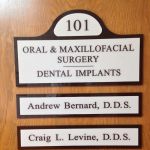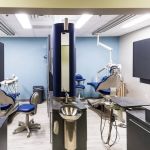- 1-Understanding-Teeth-Grinding-at-Night
- 2-Common-Causes-and-Consequences
- 3-Practical-Treatment-Options
- 4-Lifestyle-Changes-and-Prevention
- 5-Real-Life-Cases-and-Expert-Insights
1. Understanding Teeth Grinding at Night
Teeth grinding at night, medically known as nocturnal bruxism, is a common yet often overlooked problem affecting millions worldwide. This involuntary grinding or clenching of teeth during sleep can range from occasional episodes to chronic conditions that severely damage dental health and disrupt sleep quality. Understanding how to treat teeth grinding at night begins with recognizing its symptoms—such as jaw pain, headaches upon waking, worn tooth surfaces, and even disturbed sleep patterns for partners.
Many people may not even realize they grind their teeth until a dentist points it out during a routine exam or a loved one notices the noise. This underscores the importance of awareness and early intervention to prevent long-term damage. Addressing teeth grinding effectively requires a comprehensive approach that combines dental care, lifestyle adjustments, and sometimes psychological support.
2. Common Causes and Consequences
Bruxism often originates from a mixture of physical, psychological, and lifestyle factors. Stress and anxiety are among the most frequently cited triggers, causing muscle tension that manifests as grinding during sleep. Other causes include abnormal bite alignment, sleep disorders like sleep apnea, and certain medications or stimulants such as caffeine and nicotine.
The consequences of untreated teeth grinding can be serious. Beyond worn-down enamel and increased tooth sensitivity, it can lead to temporomandibular joint (TMJ) disorders, which cause chronic jaw pain and headaches. In extreme cases, cracked or fractured teeth may require extensive dental restoration. These complications highlight why learning how to treat teeth grinding at night is essential not only for dental health but for overall well-being.
3. Practical Treatment Options
Effective treatment of teeth grinding at night combines both professional dental interventions and self-care strategies. One of the most common solutions is a custom-fitted night guard or splint, which dentists create to protect the teeth from grinding damage. These devices act as a cushion between upper and lower teeth, significantly reducing wear and preventing jaw strain.
In addition, dentists may recommend correcting bite issues through orthodontics or restorative dental procedures. For those whose bruxism stems from stress or anxiety, cognitive-behavioral therapy (CBT) or relaxation techniques can be beneficial. Some patients find relief through muscle relaxants or Botox injections, although these treatments are generally reserved for severe cases.
At Dentistry Toothtruth, patients can access expert advice and tailored solutions to find the right treatment plan for their specific needs. Whether you need a custom night guard or guidance on managing stress-related grinding, the professionals there provide comprehensive support.
4. Lifestyle Changes and Prevention
Addressing teeth grinding involves more than just dental devices—it also requires mindful lifestyle adjustments. Reducing caffeine and alcohol intake, especially in the evening, helps decrease nighttime grinding intensity. Establishing a calming bedtime routine, such as meditation or gentle stretching, can alleviate stress, a major contributing factor.
Maintaining good sleep hygiene by setting consistent sleep schedules and ensuring a comfortable sleep environment also plays a crucial role. Avoiding chewing gum or biting on hard objects during the day helps minimize muscle fatigue that might trigger nighttime bruxism.
Incorporating these changes not only reduces the severity of teeth grinding but also enhances overall sleep quality and mental health. These preventive steps, combined with professional dental care, form a robust defense against the damage caused by nocturnal bruxism.
5. Real-Life Cases and Expert Insights
Consider the case of Sarah, a 34-year-old graphic designer who experienced chronic headaches and jaw pain for months before a dentist diagnosed her with nocturnal bruxism. Initially skeptical about wearing a night guard, Sarah was surprised by how much relief it brought. Coupled with stress management techniques, her symptoms improved dramatically within weeks.
Experts emphasize that early diagnosis and personalized treatment plans are critical. Dr. James Lin, a leading dentist at Dentistry Toothtruth, shares, "Many patients underestimate the impact of teeth grinding until significant damage has occurred. Our goal is to provide tailored solutions that not only protect teeth but improve patients’ quality of life."
Stories like Sarah’s illustrate that managing and treating teeth grinding at night is achievable with the right combination of dental care and lifestyle modification. For anyone struggling with this condition, seeking professional guidance and exploring options at Dentistry Toothtruth can make a meaningful difference.







 Small World Dental - Pediatric Dentist and Orthodontist4.0 (1469 review)
Small World Dental - Pediatric Dentist and Orthodontist4.0 (1469 review) Levine Craig L DDS0.0 (0 review)
Levine Craig L DDS0.0 (0 review) Howell Family Dental3.0 (73 review)
Howell Family Dental3.0 (73 review) RiverRock Dental4.0 (157 review)
RiverRock Dental4.0 (157 review) Parkside Dental & Implant Center4.0 (80 review)
Parkside Dental & Implant Center4.0 (80 review) Southside Community Health Services4.0 (186 review)
Southside Community Health Services4.0 (186 review) The Importance of Oral Health Education During Pregnancy for a Healthy Pregnancy
The Importance of Oral Health Education During Pregnancy for a Healthy Pregnancy Best Tips for Brushing Your Teeth Properly for Healthy Gums: Essential Techniques for Oral Health
Best Tips for Brushing Your Teeth Properly for Healthy Gums: Essential Techniques for Oral Health Why Skipping Dental Checkups Can Lead to Bigger Oral Health Problems
Why Skipping Dental Checkups Can Lead to Bigger Oral Health Problems Advantages of Porcelain Dental Restorations
Advantages of Porcelain Dental Restorations How Can Diabetes Cause Tooth and Gum Problems? Preventing and Managing Oral Health Issues
How Can Diabetes Cause Tooth and Gum Problems? Preventing and Managing Oral Health Issues Healthy Habits for Promoting Good Oral Health and Hygiene: Tips for a Healthy Smile
Healthy Habits for Promoting Good Oral Health and Hygiene: Tips for a Healthy Smile